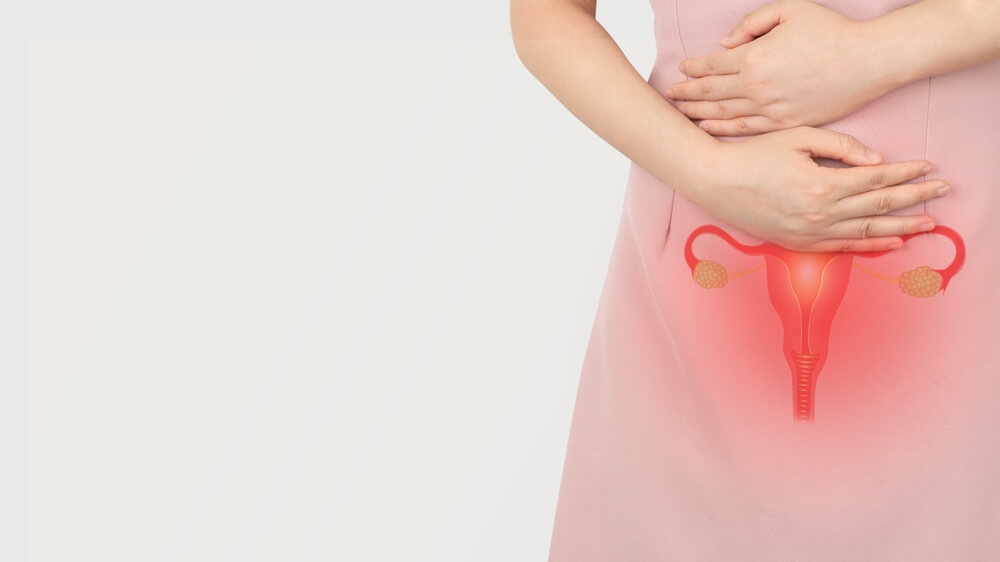It all started in 2018 when the month of September was federally designated as Polycystic Ovary Syndrome (PCOS) Awareness month.
What is PCOS Awareness Month?
The designation is meant to showcase the seriousness of PCOS and show support for the millions of females who are currently diagnosed with the disease as well as those who will be diagnosed in the future. PCOS is one of the most common causes of female infertility and affects approximately five million women in the US.
“That staggering statistic is probably one of the driving forces behind the official designation of September as PCOS Awareness Month. Polycystic Ovary Syndrome is a difficult disease to diagnose and even more difficult to treat since there is no direct cause or cure,” explained Nathan B. Hirsch MD, the founding partner at South Miami OB-GYN Associates. “The hope is by dedicating September as PCOS Awareness Month, we can improve diagnosis and treatment and spur the need for further research.”
Here’s another important reason for creating awareness about PCOS. Research indicates there is an increased risk for other health conditions associated with PCOS including:
- Diabetes: According to the CDC, more than 50% of women diagnosed with PCOS develop diabetes or prediabetes by the age of 40.
- Hypertension: Women with PCOS have an increased risk of hypertension which can lead to heart disease.
- Complications in pregnancy: Women with PCOS have an increased risk of gestational diabetes, preeclampsia, cesarean, miscarriage, and fetal and infant death.
- Depression and anxiety: Women with PCOS have a higher rate of psychosocial disorders including depression and anxiety.
#1 Surprising fact about PCOS: Women with PCOS have an increased risk for breast cancer, ovarian cancer, and endometrial cancer.
The risk factors for other diseases increase the importance of diagnosing and treating PCOS.
What is PCOS?

Polycystic Ovary Syndrome (PCOS) is a hormonal disorder where your reproductive hormones are out of balance.
#2 Surprising fact about PCOS: The name Polycystic Ovary Syndrome can be misleading. Most ovarian cysts cause no symptoms and go away on their own. Ovarian cysts are the result of a hormonal imbalance, not the cause of it. PCOS is a lifelong medical condition that can be treated but the underlying sensitivity is a constant.
What are the classic symptoms of PCOS?
The classic symptoms of PCOS include:
- Obesity and excessive weight gain
- Hirsutism-excessive hair growth on your face and other body parts
- Anovulation-when the egg is not released during ovulation
- Infertility related to failure to ovulate
- Irregular periods or amenorrhea (no period at all)
- Polycystic ovaries (the presence of follicles on the ovaries)
- Thinning hair
Obesity, Hirsutism, and Anovulation are referred to as the classic triad of PCOS.
#3 But that leads us to another surprising fact about PCOS:
Not every woman with PCOS has the classic triad. Not every woman with PCOS is overweight. Not every woman has ovulation issues or excessive hair. This lack of consistent, across-the-board symptoms is one of the reasons PCOS is difficult to diagnose.
There are also some uncommon, more subtle symptoms of PCOS:
- Cravings for carbs such as pasta, bananas, potatoes, and beer
- Excessive fatigue
- Adult acne and thinning hair due to an increase in male hormones
- Dark skin patches, also known as acanthosis nigricans, due to abnormally high levels of insulin
- Depression or mood swings due to infertility, excess hair, and obesity
#4 Surprising fact about PCOS: There is a male equivalent of PCOS. Predominant in families with a PCOS history, the male equivalent of PCOS is characterized by early-onset male patterned baldness, excessive hair growth, or acne.
What is the cause of PCOS?
The exact cause of PCOS has not yet been identified. Here are some possibilities:
Genetic link: There is a strong belief that PCOS is genetic as PCOS sometimes runs in families. Your risk for developing PCOS increases if your sister, mom, or aunt has been diagnosed with PCOS though no specific genes associated with PCOS have been identified.
Insulin resistance: Insulin resistance means your body is resistant to the positive effects of insulin. To compensate, your body increases insulin production which causes the ovaries to overproduce testosterone. Excess testosterone can prevent normal ovulation. In addition, insulin resistance can cause excessive weight gain which can exacerbate the symptoms of PCOS.
Hormone imbalance: Too much testosterone, too much luteinizing hormone (LH), and low levels of sex-hormone-binding globulin (SHBG) can cause an imbalance.
How is PCOS Diagnosed?
The PCOS diagnosis is complex. Very few women have the same symptoms making it difficult to generalize and the symptoms can change with age. Generally, a diagnosis is made by ruling out other causes of the PCOS symptoms but confirming that you have two of the following three symptoms:
- Irregular periods
- High levels of male hormones such as testosterone
- Polycystic ovaries as indicated by a scan
In our experience as OBGYNs, we base our diagnosis on your medical, family, and menstrual history, a blood test to check your hormones and an ultrasound of your ovaries. This combination has proven extremely effective for PCOS diagnosis and gives us the information we need to identify the proper treatment.
#5 Surprising Fact about PCOS: Many women have PCOS and have no idea they have it. According to one study, up to 70% of women with PCOS have not been diagnosed.
Though there is no cure for PCOS, it is treatable. And that is good news.
What are the most effective treatments for PCOS?

PCOS treatment generally focuses on ameliorating specific issues such as obesity. infertility, acne, unwanted hair growth, etc.
Lifestyle changes are often a primary recommendation for PCOS treatment. Weight loss through a combination of diet and exercise is generally suggested since even a slight weight loss can reduce the symptoms of PCOS and help with infertility. Limiting carbs and a regular exercise program may prevent insulin resistance and lower your weight.
Prescription medications to regulate your period and hormones such as combination birth control pills are often an effective PCOS treatment. To help you ovulate, your OBGYN may recommend oral medications such as Clomiphene, an anti-estrogen medication, Letrozole, Metformin to improve insulin resistance, and injectables such as Gonadotropins.
Birth control pills can often reduce unwanted hair growth. Other prescription medications such as Spironolactone can block the effect of androgen but can’t be taken if you are trying to get pregnant. We often recommend topical creams to slow hair growth as well as electrolysis in addition to oral medications.
With treatment, most women with PCOS can get pregnant and successfully deliver a healthy baby. We have seen this firsthand in our office. Our goal is to help you learn the facts about PCOS and support you through your PCOS journey.
Click HERE to schedule your appointment online today for either our South Miami or Downtown Doral office.




